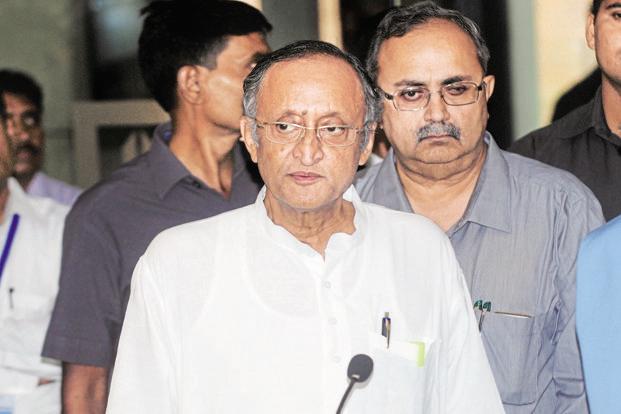GST council, a siege and history
Live mint
By Anil Padmanabhan
Mon, Dec 19 2016. 01 41 AM IST
The GST council will keep in mind that it is on the threshold of creating economic history. Will it prefer to be remembered for enabling it or derailing it? The nation wants to know.

According to the public articulations of two of the most vocal critics, including West Bengal finance minister Amit Mitra, the surprise move to demonetise high-value currencies by the Union government has revived a trust deficit between the centre and states. Photo: Indranil Bhoumik/Mint
Later this week, the goods and services tax (GST) council will convene yet again to generate consensus on issues threatening to derail the deadline of 1 April for the roll-out of what is by any stretch the single-most important piece of tax reforms ever attempted—something that will, for the first time, economically unify the country and reinforce the new federal compact put in place by the 14th Finance Commission.
Despite this game-changing scope of discussions and the opportunity to be part of a key economic history of India, there is, all around, a sense of weariness ahead of the meeting.
Understandable, given the council is a house divided at present. An ongoing stand-off has forced the apex decision-making body on the GST to stretch its deliberations, something which has derailed the legislative agenda and cast a shadow over the 1 April deadline because the enabling GST bills could not, as planned, be moved before Parliament in the just-concluded winter session.
And the way the council is structured, things can’t go forward without both the centre and states (or at least most of them) being in agreement. This is because the states together account for two-thirds of the votes and the balance is held by the centre; this structure favours consensus rather than a vote, which could split the council on political lines.
According to the public articulations of two of the most vocal critics, West Bengal finance minister Amit Mitra and his Kerala counterpart Thomas Isaac, the surprise move to demonetise high-value currencies by the Union government has revived a trust deficit between the centre and states. Both argue that the economic shock of demonetisation had impacted the revenue inflows of states and left them economically vulnerable, which means they won’t be able to cope with the likely disruption due to the implementation of the GST.
Besides posting on his Facebook page, Issac last week tweeted: “#DeMonetisation derailed the mutual trust. Topples the #GST plans from Apr 1st.”
Mitra, taking cue from his boss, West Bengal chief minister Mamata Banerjee—who is a trenchant critic of demonetisation—said, “We must do GST, but do it at a time when it is feasible, successful, when states’ revenues do not decline significantly, Centre is able to compensate the states and federal polity of India is preserved. I do not see that at this time.”
A fair argument—only that both states have often let their politics (the Communist Party of India (Marxist), which leads the coalition in Kerala, and the Trinamool Congress (TMC) that rules West Bengal are bitter political rivals of the Bharatiya Janata Party (BJP), which heads the coalition at the centre) dictate their economics and are hence vulnerable to the charge of obstructionism.
For instance, West Bengal and Kerala are morally remiss, as neither has ratified the constitution amendment bill passed by Parliament in August, which, among other things paved the way for setting up of the GST council; another matter that the requisite number of ratifications were in place to enable the amendment. And this despite the fact that Mitra chaired the erstwhile empowered group of state finance ministers—the body previously guiding GST.
It is also a fact that the differences in the council preceded the move to demonetise. It largely arises from the sharing of administrative powers over GST between the centre and states; after 8 November, this divide widened.
According to insiders in the GST council, this face-off is nothing but a proxy war forced by the respective bureaucracies of the centre and states, both of whom are insecure about their powers in a GST era, especially as they have for long enjoyed consummate powers (wantonly misused) in administering indirect taxes. To insiders, this is baffling: GST is based on a self-attestation process and hence beyond the purview of any command-control regime existing previously; so, oversight will be based on random audits and not a scrutiny of every transaction.
If indeed this is true, then it is time the politicians took charge and not allow the bureaucrats to hold negotiations hostage. In any case, the face-off has acquired a political hue; not one of the centre versus states as much as the BJP versus the rest (where the logic of ‘enemy’s enemy is my friend’ prevails).
Presumably, the council will keep in mind that they are on the threshold of creating economic history. Would they prefer to be remembered for enabling it or derailing it? The nation wants to know.
Anil Padmanabhan is executive editor of Mint and writes every week on the intersection of politics and economics.